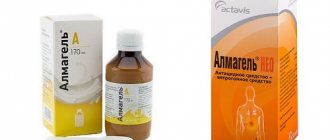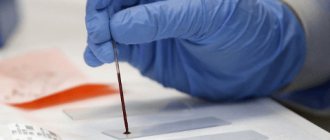Preparation for video colonoscopy with the drug "COLOKIT"
Preparation for video colonoscopy with the drug “COLOKIT”:
| Allowed: | Forbidden: |
| —Cheese, sour cream, butter, yogurt without additives or fillers, dairy products, eggs. | All bakery products, flour and pasta products |
| -Well-cooked white rice (except pilaf) | -Vegetables, including potatoes, herbs, mushrooms, seaweed |
| -Sugar, honey (not in honeycombs) | Seafood |
| -Broths (transparent, strained), juice without pulp, tea, water, non-alcoholic uncolored drinks | Cereals, cereals, legumes, cereals, nuts, seeds, sesame, poppy seeds, grains, bran and other seeds, spices |
| -Allowed products and liquids must not contain small seeds, grains, seeds, bran | -Tough meat with cartilage, sausages, sausages, canned food - Fruits, berries, including dried fruits, preserves, jam, marmalade, jelly |
Directions for use and dosage: 1. The day before, take 4 tablets with 250 ml of water (or other clear liquid)
2.Then repeat 4 times (4 tablets with 250 ml of water or other liquid) with an interval of 15 minutes. Thus, a total of 20 tablets should be taken. On the day of the examination (4-5 hours before the examination): 1. Take 4 tablets with 250 ml of water or other liquid. 2. Then repeat 2 times (4 tablets with 250 ml of water or other liquid) with an interval of 15 minutes, so that a total of 12 tablets are taken. examination , and therefore the accuracy of the diagnosis and the prescription of timely treatment if necessary, depends on preparation - quality bowel preparation makes it possible to detect colon cancer at an early stage and small colon cancer . For chronic constipation : The diet must be followed for 5 days. 3-5 days before the examination, start or continue taking laxatives on the recommendation of a gastroenterologist or endoscopist. Constantly taken drugs: Accelerated transit of intestinal contents leads to a sharp decrease or complete absence of the therapeutic effect of drugs taken before or in preparation for the study. This should be taken into account if you are constantly taking hormonal, cardiac, antihypertensive and other vital medications, the use of which should not be interrupted. It is recommended to discontinue iron supplements 2-3 days before the colonoscopy.
Diabetes mellitus: If you are taking oral antiglycemic agents, it is recommended that you refrain from taking them while preparing for a colonoscopy and return to taking them after the test and you have begun a normal diet. There is no need to fast on the day of your colonoscopy. Immediately before the start of the study, a light breakfast (tea or coffee with sugar/honey) is acceptable, which will not interfere with the study, but will also make it easier to endure the colonoscopy.
Kolokit tab No. 32
Compound
Active ingredients: sodium dihydrogen phosphate monohydrate - 1102 mg, sodium hydrogen phosphate - 398 mg. Excipients: macrogol 8000 - 167.6 mg, magnesium stearate - 8.4 mg.
Pharmacokinetics
Sodium phosphate is poorly absorbed in the intestine, but absorption of sodium and phosphate ions does occur and is dose dependent.
Indications for use
Cleansing the colon in order to prepare for colonoscopy, surgical operations that require the absence of contents in the colon, and x-ray examination of the abdominal organs.
Contraindications
- children under 18 years of age;
- old age over 75 years;
- hypersensitivity to the components of the drug;
- pregnancy and breastfeeding period.
Do not use in patients with a history of the following diseases:
- clinically significant renal failure;
- primary hyperparathyroidism associated with hypercalcemia;
- congestive heart failure;
- unstable angina;
- ascites;
- known or suspected obstruction, severe chronic constipation;
- megacolon (congenital or acquired), or patients who have undergone gastric bypass surgery;
- hypokinesia syndrome (as a result of hypothyroidism, scleroderma);
- intestinal perforation;
- active inflammatory bowel disease.
Carefully:
- patients at high risk of renal failure, with pre-existing electrolyte disorders or risk of electrolyte disorders;
- patients with clinically significant arterial hypotension (also associated with hypovolemia);
- patients with heart disease, acute myocardial infarction, unstable angina;
- elderly or frail patients. In this risk group, the content of sodium, potassium, chloride, bicarbonate, phosphate, urea and creatinine in the blood serum should be monitored before and after use;
- patients with gastrointestinal hypokinesia; after a history of surgery on the gastrointestinal tract; with other diseases predisposing to gastrointestinal hypokinesia; in patients on a low-salt diet;
- patients taking drugs that inhibit angiotensin-converting enzyme;
- patients taking drugs that block angiotensin receptors or diuretics;
- patients taking non-steroidal anti-inflammatory drugs - while taking laxatives, dehydration and hypovolemia may increase;
- patients taking parathyroid hormone (parathyroid hormone regulates the level of calcium in the blood serum due to its effect on bones, kidneys and intestines, and also reduces the reabsorption of phosphates from the proximal tubules of the kidneys, and therefore increases the excretion of phosphates in the urine; since the drug "Kolokit" » contains phosphates, there is a risk of interaction).
One tablet of the drug COLOKIT contains 313 mg of sodium, take this into account if you are following a low-sodium diet.
Directions for use and doses
You should start taking COLOKIT the day before the examination (surgery). The day before the examination (surgery), the patient can have breakfast with foods low in fiber (coffee or tea with or without sugar, toast, butter or fruit jelly or honey). During lunch and later, only drinking is allowed. You can drink water, light soup, diluted fruit juice without pulp, weak tea or black coffee, carbonated drinks.
The drug COLOKIT should be taken according to the following regimen:
- The day before the examination (surgery):
1. Take 4 tablets with 250 ml of water (or other liquid).
Then repeat 4 times (4 tablets with 250 ml of water or other liquid) with an interval of 15 minutes. Thus, a total of 20 tablets should be taken.
- On the day of the examination (4-5 hours before the examination/surgery):
1. Take 4 tablets with 250 ml of water or other liquid.
2. Then repeat 2 times (4 tablets with 250 ml of water or other liquid) with an interval of 15 minutes, so that a total of 12 tablets are taken.
Storage conditions
At a temperature not exceeding 25°C, out of the reach of children.
Best before date
3 years. Do not use after the expiration date stated on the package.
special instructions
It is necessary to explain to the patient the importance of strict adherence to the drug regimen and drinking as much fluid as possible to avoid dehydration. Drinking plenty of water also helps maximize colon cleansing.
The drug COLOKIT can be taken again no earlier than 7 days after the previous dose.
The drug COLOKIT should not be taken simultaneously with other laxatives (especially with drugs containing sodium phosphate).
The drug COLOKIT should not be used for the treatment of constipation.
The drug COLOKIT usually acts within 0.5 hours to 6 hours after administration. If intestinal motility does not increase within 6 hours after taking the drug, you should stop taking COLOKIT and consult a doctor immediately, as there is a possible risk of dehydration.
One tablet contains 313 mg of sodium: consider this if you are following a low-sodium diet.
Description
Laxative.
Dosage form
Oval biconvex tablets from white to almost white, on one side there is a score line, engraving “SLX” on one half and “102” on the other, on the other side there is a tablet without lines and inscriptions.
Use in children
The drug is contraindicated for use in children and adolescents under 18 years of age.
Pharmacodynamics
Saline laxative.
The action is based on increasing fluid retention in the intestine through osmotic processes.
When taken orally, the accumulation of fluid in the ileum leads to stretching of its walls, increased peristalsis and subsequent bowel movement.
When administered rectally, the accumulation of fluid in the intestine leads to increased peristalsis and subsequent bowel movement.
Side effects
Adverse reactions of the drug are systematized in relation to each organ system depending on the frequency of occurrence, using the following classification:
- Very common (≥ 1/10);
- Often (≥ 1/100, <1/10);
- Uncommon (≥ 1/1000, <1/100);
- Rarely (≥ 1/10000, <1/1000);
- Very rare (<1/10000), including isolated cases.
Immune system disorders:
Rarely - allergic dermatitis or hypersensitivity reaction.
Nervous system disorders:
Often - headache, dizziness;
Very rarely - paresthesia, generalized tonic-clonic seizures.
Metabolic disorders:
Rarely - dehydration;
Very rarely - hyperphosphatemia, hypocalcemia, hypokalemia, hypernatremia, metabolic acidosis.
Cardiovascular system disorders:
Very rarely - myocardial infarction, arrhythmia, hypotension.
Gastrointestinal disorders:
Very often - diarrhea, abdominal pain, bloating, nausea;
Often - vomiting, abnormal colonoscopy (single or multiple aphthous ulcerations localized in the sigmoid colon or rectum, which are not clinically significant and disappear spontaneously without therapy), abnormal gastroscopy (erythematous gastritis with lesions and/or necrotic superficial ulcerations in the intestine, most often asymptomatic and spontaneously regressive)
General disorders and complications at the injection site:
Very rare: chills, asthenia.
Musculoskeletal and connective tissue disorders:
Very rarely - muscle cramps.
Renal and urinary tract disorders:
Increased urinary nitrogen, increased creatinine, acute renal failure, nephrocalcinosis, acute phosphate nephropathy and acute tubular necrosis.
Use during pregnancy and breastfeeding
Do not use during pregnancy and lactation.
Interaction
When taken simultaneously with drugs - calcium channel blockers, diuretics, lithium preparations or other drugs that can affect the concentration of electrolytes in the blood serum, the likelihood of developing hyperphosphatemia, hypocalcemia, hypokalemia, hypernatremic dehydration or acidosis increases.
When used simultaneously with COLOKIT, the effectiveness of oral contraceptives, antiepileptic drugs, and antidiabetic drugs may be partially reduced or completely absent.
Overdose
Symptoms of overdose: dehydration, hypotension, tachycardia, bradycardia, tachypnea, cardiac arrest, shock, respiratory arrest, dyspnea, convulsions, paralytic ileus, anxiety, pain.
Overdose can lead to increased concentrations of sodium and phosphate in the blood serum and decreased concentrations of calcium and potassium. In this case, hypernatremia, hyperphosphatemia, hypocalcemia, hypokalemia and acidosis may develop.
Overdose therapy: rehydration and intravenous administration of calcium gluconate 10%.
Impact on the ability to drive vehicles and operate machinery
This medicine may cause drowsiness, possibly due to dehydration. Therefore, driving vehicles and operating machinery while using the drug is prohibited.




